Counselor to the President
| Counselor to the President | |
|---|---|
 | |
|
Incumbent Vacant | |
|
Executive Office of the President White House Office | |
| Appointer |
Barack Obama as President of the United States |
| Formation | January 20, 1969 |
| First holder | Arthur F. Burns |
| Website | The White House |
The Counselor to the President is a high-ranking assistant to the President of the United States, and a senior member of the Executive Office of the President.
History
The position was created during the administration of Richard Nixon, where it was assigned cabinet-rank. The position would be considered at cabinet level until 1993.
During Nixon's presidency, no fewer than eight individuals held the position, with there sometimes being two or three "Counselors to the President."
During the presidency of Gerald Ford, the post was shared by Robert Hartmann and John O. Marsh.
The position was vacant during the Jimmy Carter administration, as Carter left many senior White House positions unfilled (such as White House Chief of Staff) and preferred a smaller core of advisers.[1]
Edwin Meese held the position during the first term of President Ronald Reagan, and was highly influential inside the White House. Meese, White House Chief of Staff James Baker and Deputy White House Chief of Staff Michael Deaver were nicknamed "The Troika" and considered the most influential advisors to the president.[2]
Meese became Attorney General during Reagan's second term as president and the position was left vacant.
The position was left vacant in the first three years of President George H.W. Bush's term. In 1992 it was filled by Clayton Yeutter after he resigned as chairman of the Republican National Committee.
During the Bill Clinton administration, the post became much more focused on communications. Two of Clinton's counselors, David Gergen and Paul Begala, later became CNN political analysts.
During the administration of George W. Bush, the Counselor oversaw the Communications, Media Affairs, Speechwriting, and Press Offices.[3]
Under the Obama Administration, the position was initially abolished and the duties of the office transferred to three senior advisors: David Axelrod,[4][5] Pete Rouse,[5][6] and Valerie Jarrett,[7] who also held the title Assistant to the President for Intergovernmental Relations and Public Liaison.[5] On January 6, 2011, President Obama appointed Rouse as Counselor to the President where he was responsible for assisting the President and White House Chief of Staff with the day-to-day management of White House staff operations.[8][9] John Podesta was the last person to hold the position before he left to join the Hillary Clinton presidential campaign of 2016 as chairman.[10]
Soon after the 2016 election, President-elect Donald Trump announced his intention to have Stephen Bannon serve as his senior counselor. Bannon will also have the additional title of "chief strategist."[11]
List of Counselors to the President
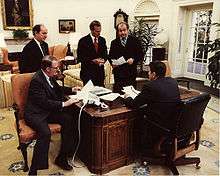
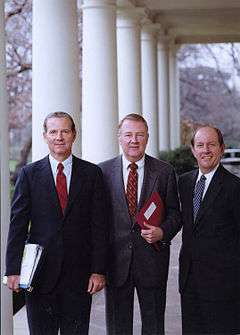

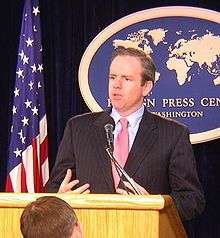
.jpg)
.jpg)
.jpg)
| Counselor | Term of office | Party | President | ||
|---|---|---|---|---|---|
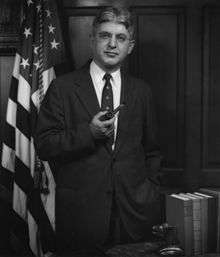 |
Arthur F. Burns (1904–1987) |
January 20, 1969 – November 5, 1969 |
Republican | Richard Nixon (1969–1974) | |
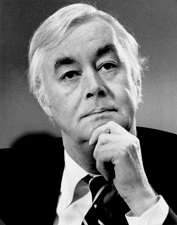 |
Pat Moynihan (1927–2003) |
November 5, 1969[12] – December 31, 1970[13] |
Democratic | ||
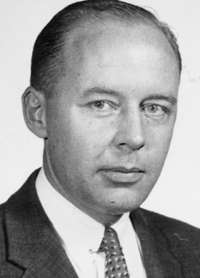 |
Bryce Harlow (1916–1987) |
November 5, 1969[12] – December 9, 1970[14] |
Republican | ||
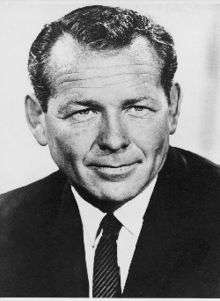 |
Robert Finch (1925–1995) |
June 23, 1970[15] – December 15, 1972[16] |
Republican | ||
 |
Donald Rumsfeld (born 1932) |
December 11, 1970[17] – October 15, 1971[17] |
Republican | ||
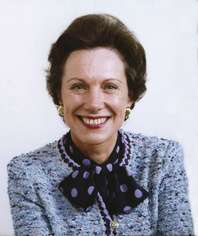 |
Anne Armstrong (1927–2008) |
January 19, 1973 – December 18, 1974 |
Republican | ||
 |
Dean Burch (1927–1991) |
March 8, 1974[18] – December 31, 1974[19] |
Republican | ||
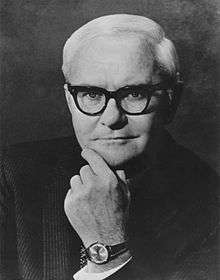 |
Kenneth Rush (1910–1994) |
May 29, 1974[20] – September 19, 1974[21] |
Republican | ||
 |
Robert Hartmann[22] (1917–2008) |
August 9, 1974 – January 20, 1977 |
Republican | Gerald Ford (1974–1977) | |
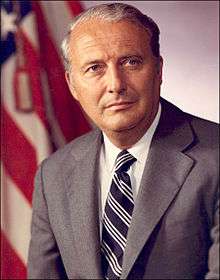 |
John O. Marsh (born 1926) |
August 9, 1974[23] – January 20, 1977[24] |
Democratic | ||
| Vacant | Jimmy Carter (1977–1981) | ||||
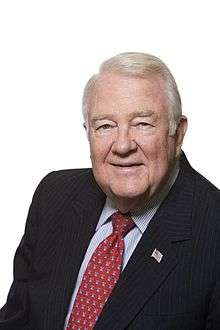 |
Edwin Meese (born 1931) |
January 20, 1981 – February 25, 1985 |
Republican | Ronald Reagan (1981–1989) | |
| Vacant | |||||
| George H.W. Bush (1989–1993) | |||||
 |
Clayton Yeutter (born 1930) |
February 1, 1992 – January 20, 1993 |
Republican | ||
| Vacant | Bill Clinton (1993–2001) | ||||
 |
David Gergen (born 1942) |
May 29, 1993 – June 10, 1994 |
Republican | ||
| Vacant | |||||
 |
Bill Curry (born 1951) |
February 21, 1995 – January 20, 1997 |
Democratic | ||
| |
Paul Begala (born 1961) |
August 17, 1997[25] – March 10, 1999 |
Democratic | ||
 |
Ann Lewis (born 1937) |
March 10, 1999 – January 20, 2001 |
Democratic | ||
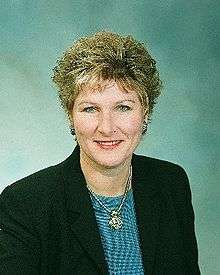 |
Karen Hughes (born 1956) |
January 20, 2001 – July 8, 2002 |
Republican | George W. Bush (2001–2009) | |
| Vacant | |||||
 |
Dan Bartlett (born 1971) |
January 5, 2005 – July 5, 2007 |
Republican | ||
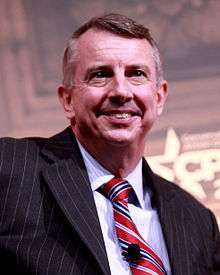 |
Ed Gillespie (born 1961) |
July 5, 2007 – January 20, 2009 |
Republican | ||
| Vacant | Barack Obama (2009–2017) | ||||
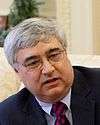 |
Pete Rouse (born 1946) |
January 13, 2011 – January 1, 2014 |
Democratic | ||
 |
John Podesta (born 1949) |
January 1, 2014 – February 13, 2015 |
Democratic | ||
| Vacant | |||||
 |
Steve Bannon (born 1953) |
January 20, 2017 | Republican | Donald Trump (2017) | |
References
- ↑ "Citation Information" (PDF). Jimmycarterlibrary.gov. Retrieved 2016-11-18.
- ↑ "The Presidential Troika". NYTimes.com. 1981-04-19. Retrieved 2016-11-14.
- ↑ "Former Counselor to the President, Dan Bartlett's Biography". Georgewbush-whitehouse.archives.gov. 2008-10-22. Retrieved 2016-11-14.
- ↑ "Archived copy". Archived from the original on 2009-01-22. Retrieved 2009-01-24.
- 1 2 3 "Archived copy". Archived from the original on 2009-04-22. Retrieved 2009-04-21.
- ↑ "Archived copy". Archived from the original on 2009-01-22. Retrieved 2009-01-22.
- ↑ "Senior Advisor Valerie Jarrett". whitehouse.gov. Retrieved 2016-11-14.
- ↑ "Obama Picks William Daley As Chief Of Staff". NPR. 2011-01-06. Retrieved 2011-01-06.
- ↑ "Daley's duties".
- ↑ "Counselor to the President John Podesta". WhiteHouse.gov. Retrieved October 1, 2014.
- ↑ "Donald Trump Taps Reince Priebus As Chief Of Staff, Steve Bannon As Chief Strategist : The Two-Way". NPR. 2016-08-17. Retrieved 2016-11-14.
- 1 2 Archived October 23, 2016, at the Wayback Machine.
- ↑ "White House Farewell". The New York Times. Retrieved 2016-11-18.
- ↑ "Harlow Resigns As Aide to Nixon; Will Return to Lobbyist Post". The New York Times. Retrieved 2016-11-18.
- ↑ "Finch and the Postwar Economy". The New York Times. Retrieved 2016-11-18.
- ↑
- 1 2
- ↑ "Burch Under Senate Pressure to Step Up FCC Departure 3 Vacancies". The New York Times. Retrieved 2016-11-18.
- ↑ "Burch Resigning as White House Adviser Notes on People". The New York Times. Retrieved 2016-11-18.
- ↑ "Rush Sworn as Counselor to President on Economy". The New York Times. Retrieved 2016-11-18.
- ↑ "Kenneth Rush - People - Department History - Office of the Historian". History.state.gov. Retrieved 2016-11-14.
- ↑ Dennis Hevesi (2008-04-19). "Robert Hartmann, 91, Dies; Wrote Ford's Noted Talk". The New York Times. Retrieved 2016-11-14.
- ↑ "Ford Bids Cabinet and Agency Heads Remain in Post Indefinite Stays". The New York Times. Retrieved 2016-11-18.
- ↑ "Ford Making Plans For Handing Over Controls to Carter - Article". The New York Times. Retrieved 2016-11-14.
- ↑ "NEWS SUMMARY". The New York Times. 1997-08-17. Retrieved 2016-11-18.